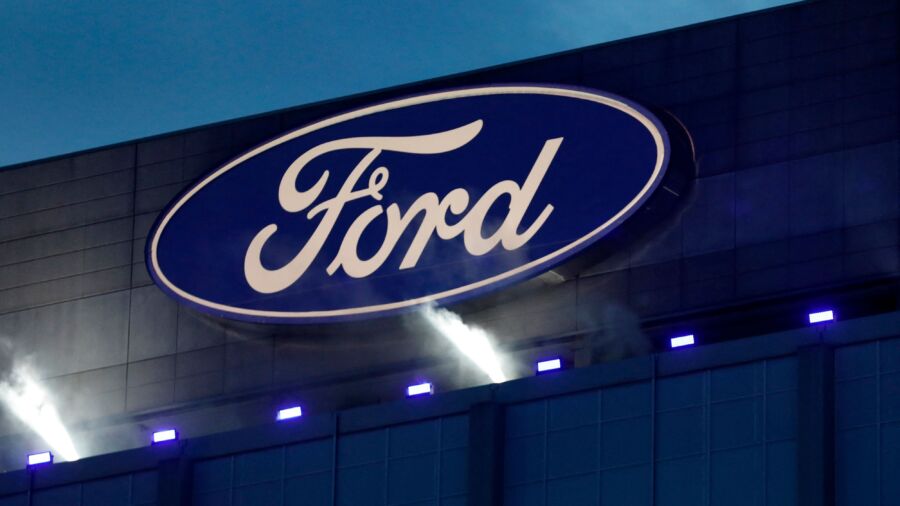Ford Motor is cutting its investment in electric vehicles (EVs), scaling back the production capability of a battery factory and slashing 800 jobs in it, it said on Tuesday, as demand for EVs has not kept pace amid inflation pressures.
Ford is scaling back production in its factory near Marshall, Michigan, which licenses technology from China-based battery maker CATL, a partnership that has attracted criticism from lawmakers.
The No. 2 U.S. automaker said its original plans to spend $3.5 billion on the Michigan factory are changing. It initially planned to make the Michigan battery plant, named Blue Oval Battery Park, big enough to produce 35 gigawatt hours of batteries annually and employ about 2,500 people.
Ford now plans to cut the plant’s capacity to 20 gigawatt hours and reduce hiring to 1,700 jobs.
Ford’s capital investment will be reduced as well, Ford spokesperson Mark Truby told reporters, without giving an exact figure. He indicated the total investment will be proportional to the 40 percent reduction in capacity. That indicates a cut of about $1.5 billion.
Ford plans to start producing low-cost lithium-iron batteries by 2026 based on technology licensed from CATL. Ford will own the factory, and has agreed to give the United Auto Workers the opportunity to organize the plant’s workers without a vote. It continued construction on the plant after a two month pause.
The company’s deal with CATL has drawn fire from U.S. lawmakers, who oppose the country’s EV subsidies flowing to a China-based entity.
Rep. Mike Gallagher (R-Wis.), who chairs the House committee on China, said on Tuesday that Ford’s reported decision was disappointing.
“The American people deserve better from an iconic U.S. company that receives massive taxpayer subsidies. Ford needs to call off this unethical deal for good,” Mr. Gallagher said.
Ford is pushing for the U.S. Treasury Department to approve lithium-iron, or LFP, batteries made at the Michigan factory to qualify for Inflation Reduction Act (IRA) EV subsidies. Ford is already using imported LFP batteries in its Mustang Mach-E electric SUV.
“We are confident in terms of IRA benefits,” Mr. Truby told reporters in a teleconference on Tuesday.
A Treasury spokeswoman did not comment.
GM Slows Investment
Rival General Motors has also cut investment in new EV capacity for North America as rising interest rates have slowed the growth in demand. GM said on Tuesday it will hold a call on Nov. 29 to brief investors on its outlook.
It also pulled back its forecast for the company’s 2023 results, and walked back its often-repeated expectation of building 400,000 EVs by mid-2024.
The Detroit Three automakers all face higher labor costs in the United States under newly ratified contracts with the United Auto Workers.
Ford said in October that it would cut future EV investments overall by $12 billion compared with previous plans. The company has previously postponed construction of a battery factory in Kentucky and another in Turkey.
During Ford’s second-quarter earnings briefing in July, Chief Executive Officer Jim Farley said the company would slow the ramp-up of money-losing EVs and shift investment to Ford’s commercial vehicle unit, citing plans to quadruple sales of gas-electric hybrids over the next five years.
Like many of its competitors, Ford is “trying to find the balance between price, margin, and EV demand,” Chief Financial Officer John Lawler said. For consumers, Mr. Farley added, “affordability is an issue.”
Controversy Over CATL Batteries
The battery plant has faced criticism since the initial announcement for its construction, with some locals expressing concern about CATL’s backing by the Chinese Communist Party (CCP) and associated national security risks.
They have also expressed concern about what they say is a lack of transparency around the process, loss of prime farmland, and the impact of a massive industrial park on a small town.
One issue is that the Battle Creek Air National Guard Base is located about 15 miles from the intended battery plant site. The base hosts a ground control station that supports U.S. missions of the MQ-9 Reaper—an armed, remotely-piloted plane—that provides intelligence to federal and state entities.

“I feel that the placement of this site is no accident; it is an effort by the CCP to gain access to our base. Our national security is at risk. Apparently, it’s OK with Ford, the local government, and the state government,” Rick Sadler, a Marshall resident who lives half a mile from the battery plant site, told The Epoch Times in an earlier interview.
On its official website’s “myths and facts” section, Marshall Area Economic Development Alliance (MAEDA) says the EV plant doesn’t involve any national security issues because there’s no technology transfer in the deal.
But that isn’t the main concern of lawmakers. Congressional lawmakers have been seeking to review the licensing agreement.
They’re concerned that the deal will facilitate China’s global dominance in EV battery technology—and that U.S. taxpayer dollars will be used to subsidize it.
In a July 20 letter addressed to Ford CEO James Farley, Reps. Mike Gallagher (R-Wis.) and Jason Smith (R-Mo.), the respective chairmen of the House Select Committee on China and the House Ways and Means Committee, expressed concern about the plant.
“Rather than developing American technology, we are concerned that the deal could simply facilitate the partial onshoring of PRC-controlled battery technology, raw materials, and employees while collecting tax credits and flowing funds back to CATL through the licensing agreement,” the lawmakers wrote.
Ford defended the deal in an earlier statement to The Epoch Times.
“On the subject more broadly, there has been a lot of misinformation about Ford’s new battery plant in Marshall, Michigan. Here are the facts: Ford alone is investing $3.5 billion and will own and run this plant in the United States instead of building a battery plant elsewhere or exclusively importing LFP batteries from China, like our competitors do,” a Ford spokesperson told The Epoch Times via email when asked to comment on the letter.
“We’re creating 2,500 new American jobs while helping to strengthen domestic manufacturing and supply chains and reduce carbon emissions. This is good for our country, good for the planet, and good for Ford’s business,” the spokesperson added.
Reuters and Tom Ozimek contributed to this report.


